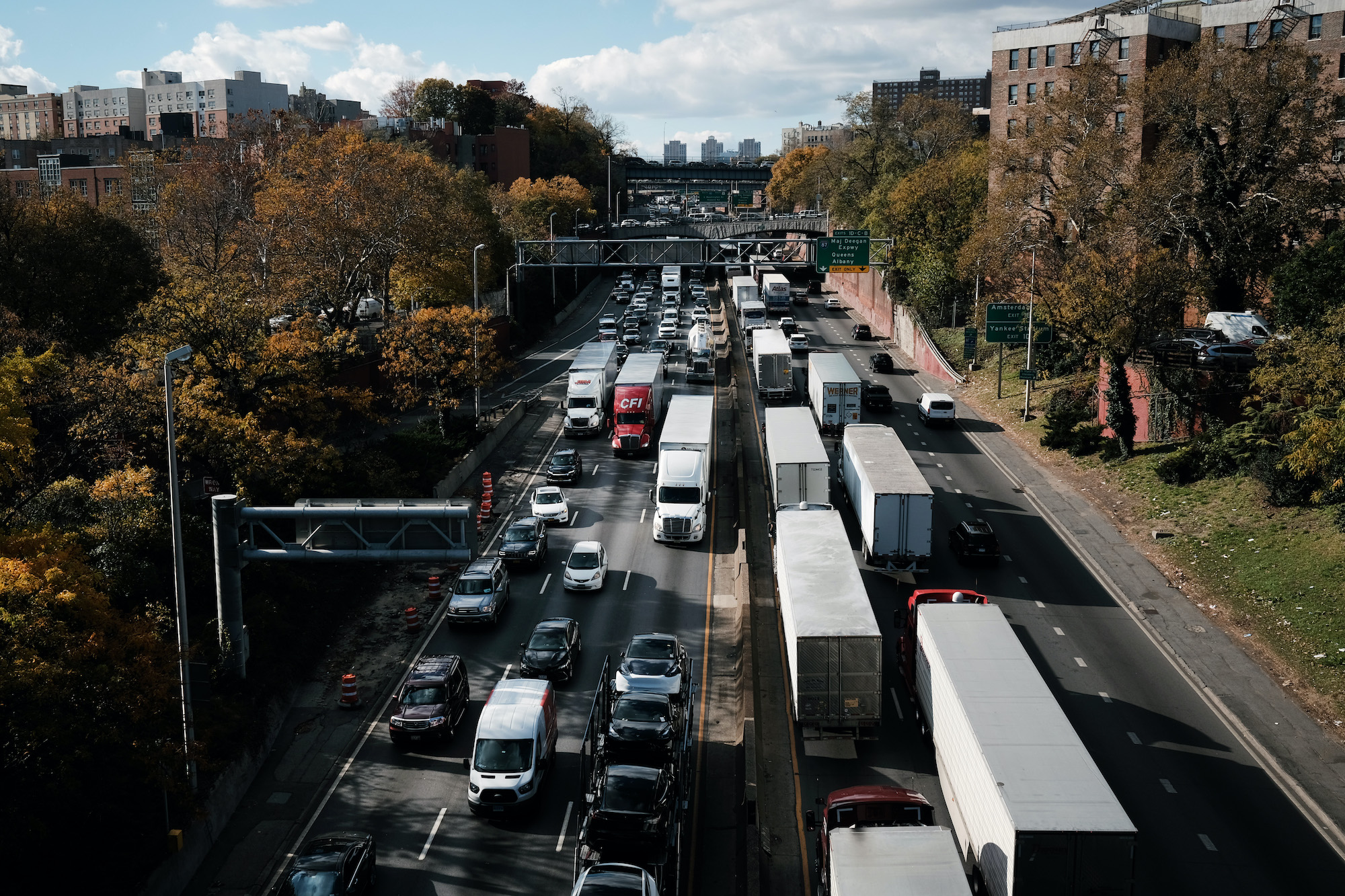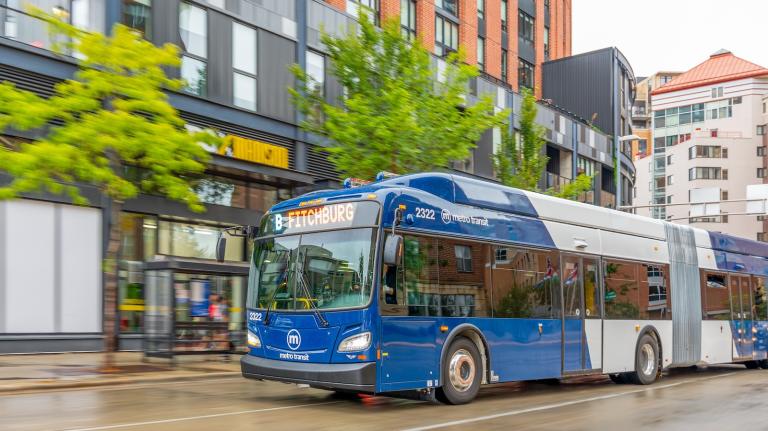The New Jersey Department of Environmental Protection earlier this week adopted a rule to phase out diesel-powered trucks – meaning anything bigger than a delivery van – starting in 2025. Based on California’s Advanced Clean Trucks rule, or ACT, New Jersey’s policy will require between 40 to 75 percent of new truck sales in the state be pollution-free, zero-emission by 2035.
“New Jersey is already experiencing the adverse impacts of climate change, but we have the power and obligation to reduce its worsening in the years ahead by acting now to limit our emissions of climate pollutants,” Shawn LaTourette, the state’s commissioner for the Department of Environmental Protection, said in a press release about the new rule.
Contributing to about 40 percent of New Jersey’s total carbon emissions, the transportation sector is the largest greenhouse gas source in the state. In turn, the almost 423,000 medium and heavy trucks that make up NJ’s fleet represent about 20 percent of vehicles’ greenhouse gas emissions, according to a report from the Natural Resources Defense Council, or NRDC, and Union of Concerned Scientists analyzing the benefits of implementing the rule. These vehicles are also responsible for large quantities of pollutants, including nitrogen oxide and particulate matter, which have been linked to multiple health issues like premature deaths, asthma, pulmonary cancer, and cardiovascular disease.
Adopting the ACT rule can reduce ozone and particulate matter emissions by 43 and 13 percent, respectively, saving the state nearly $1 billion in public health costs over the next 30 years, found the NRDC and the Union of Concerned Scientists report.
In 2020, California became the first state in the country to pass legislation to gradually phase out diesel trucks. The ACT rule proposes a timeframe to reduce the percentages of fossil fuel-powered truck sales in the state while increasing the percentage of electric vehicles sold. Besides New Jersey, Oregon and Washington have also adopted the rule. Several others are considering the act, including Pennsylvania, Maryland, Massachusetts, and Colorado. Together, the states that have both adopted the rules and those considering it represent 20 percent of the nation’s medium-and-heavy-sized truck fleet, according to the Environmental Defense Fund.
Implementing the new legislation comes with challenges. Right now, there are only 600 public charging stations for electric vehicles in New Jersey, not nearly enough to support the hundreds of thousands of trucks that circulate through the state every day, according to the state’s Department of Environmental Protection. In January, Governor Phil Murphy signed an order to install at least 75 fast-charging stations along major roads. A few months later, he signed an ordinance streamlining the process for counties to approve and install them.
Despite celebrating the decision, some environmental justice groups have also pointed out that the legislation doesn’t explicitly regulate already existing pollution, which overburdens communities living near the state’s ports where trucks as old as 23-years are authorized to operate.
The Coalition for Healthy Ports, made up of environmental justice organizations from New Jersey and New York, called to implement truck policies that replace the port diesel fleet with zero-emission alternatives, as well as implementing “zero-emission zones and corridors” in the affected communities.
“We know switching to all-electric powered trucking and goods movement will not happen overnight,” Amy Goldsmith, the New Jersey director of the nonprofit Clean Water Action, said in a statement. “But it is an essential element to protecting public health and addressing the climate crisis regardless of the zip code you live in.”




